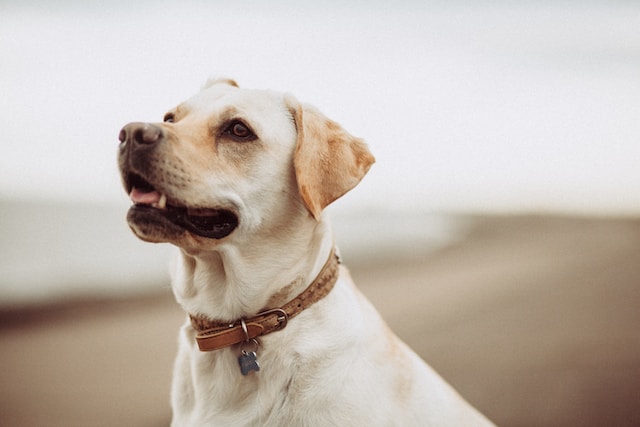What is the most comfortable material for a dog collar? In this comprehensive guide, we’ll delve into the world of dog collars and explore the factors that make one material superior to another when it comes to your furry friend’s comfort.
Whether you have a playful Poodle or a mighty Mastiff, choosing the right collar material is crucial for their well-being. Let’s embark on this journey to help you make an informed decision.
Understanding the Importance of Comfort
Why Does Material Matter?
The comfort of your dog’s collar is not just a luxury; it’s a necessity. The material plays a pivotal role in ensuring your pet’s safety, happiness, and overall health. A poorly chosen collar can lead to discomfort, skin irritations, or even more severe issues.
Therefore, it’s essential to select a material that suits your dog’s needs.
Examining Popular Collar Materials
1. Nylon Dog Collars
Nylon is a versatile material known for its durability and affordability. It’s lightweight and moisture-resistant, making it an excellent choice for active dogs. However, some nylon collars may lack padding, potentially causing chafing or discomfort for your furry friend.
2. Leather Dog Collars
Leather is a classic choice that combines durability with a timeless aesthetic. High-quality leather collars tend to be soft and comfortable, but they can be pricey. It’s essential to maintain leather collars by keeping them clean and conditioned to ensure long-lasting comfort.
3. Neoprene Dog Collars
Neoprene collars are relatively newer to the market but have gained popularity for their comfort and flexibility. Neoprene is a synthetic rubber material that is soft, water-resistant, and resistant to odors. These collars are gentle on your dog’s skin, making them an excellent choice for dogs with sensitive necks.
4. Chain Martingale Collars
Chain martingale collars are designed for dogs that to pull on the leash. They consist of a metal chain and a fabric or leather portion. While they can provide adequate training, they may not be the most comfortable option for everyday wear.
Factors to Consider When Choosing a Material
1. Dog’s Size and Breed
Consider your dog’s size and breed when selecting a collar material. Smaller dogs may prefer lighter materials like nylon or neoprene, while larger breeds might benefit from the sturdiness of leather.
2. Allergies and Sensitivities
If your dog has allergies or sensitive skin, opt for hypoallergenic materials like neoprene or leather. These materials are less likely to cause skin irritations.
3. Activity Level
Your dog’s activity level should influence your choice. Active dogs may benefit from durable nylon, while leisurely strolls may warrant a more stylish but comfortable leather collar.
4. Budget
Consider your budget when selecting a collar material. While leather and neoprene are luxurious options, nylon provides an affordable alternative without compromising on quality.
Additional Considerations
5. Reflective Collars
If you often walk your dog during low-light hours or in areas with limited visibility, consider a collar with reflective materials or features. These collars enhance safety by making your dog more visible to motorists and pedestrians.
6. Personalization and ID Tags
Another way to ensure your dog’s comfort and safety is by adding ID tags to their collar. Personalized tags with your contact information can be crucial if your dog ever gets lost. Many collars have designated areas for attaching these tags, making it a convenient and secure option.
Making an Informed Decision
Choosing the right collar material for your dog is a significant decision. It involves considering your dog’s unique needs, preferences, and lifestyle. By taking the time to explore the options and factors mentioned in this guide, you can make an informed decision that prioritizes your dog’s comfort and safety.
Frequently Asked Questions
1. Can I wash my dog’s collar in a washing machine?
It’s generally recommended to hand wash your dog’s collar with mild detergent to prevent any damage. However, some nylon and neoprene collars may be machine washable. Always check the manufacturer’s instructions for specific care recommendations.
2. How often should I replace my dog’s collar?
Collars can wear out over time, so it’s essential to regularly inspect them for signs of damage, such as fraying or weakened buckles. If you notice any issues, it’s best to replace the collar promptly to ensure your dog’s safety and comfort.
3. Are there any special considerations for puppies?
Puppies grow quickly, so you may need to replace their collars more frequently as they outgrow them. It’s essential to choose a lightweight and adjustable collar that can accommodate their changing size.
Final Thoughts
In your quest to provide the utmost comfort and safety for your beloved dog, selecting the right collar material is a crucial step. Remember that every dog is unique, and what works best for one may not be suitable for another. Take into account your dog’s size, breed, activity level, and any specific needs or sensitivities when making your choice.
With this comprehensive guide, you’re well-equipped to make an informed decision that ensures your furry companion’s happiness and well-being. Your dog’s comfort is worth the investment, and a carefully chosen collar will serve as a symbol of your love and dedication to their welfare.



